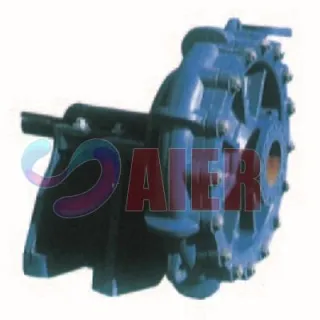Aug . 21, 2024 05:31 Back to list
Efficient Pump Solutions for Wastewater Treatment Facilities and Industrial Applications
The Importance of Pumps in Wastewater Treatment Facilities
In the realm of wastewater management, pumps are a pivotal component that ensures the efficient movement and treatment of wastewater. Wastewater treatment facilities play a crucial role in protecting public health and the environment by processing vast amounts of sewage and industrial effluent. Among the various equipment used in these facilities, pumps specifically designed for wastewater applications are indispensable, as they handle the transport of dirty water filled with solids, chemicals, and other contaminants.
Types of Pumps Used in Wastewater Treatment
There are several types of pumps utilized in wastewater treatment facilities, each designed to address specific challenges
. The most common types are centrifugal pumps and positive displacement pumps.Centrifugal Pumps are widely used due to their efficiency in handling large volumes of liquid with relatively low viscosity. They operate using a rotating impeller that imparts kinetic energy to the water, thus facilitating the movement of fluid through the system. These pumps are particularly effective for transporting wastewater from one part of the facility to another, such as from primary treatment tanks to secondary treatment systems.
Positive Displacement Pumps, on the other hand, are essential for applications requiring high-pressure discharge and pumping of thicker sludges. These pumps work by trapping a fixed volume of fluid and forcing it through the discharge pipe. They are ideal for moving thicker materials with higher solids content, such as sludge from the bottom of sedimentation tanks.
Key Considerations in Pump Selection
pump for wastewater factories

When selecting pumps for wastewater applications, several factors must be taken into account. The type of wastewater, whether it be municipal sewage or industrial discharge, significantly influences pump choice. Industrial wastewater often contains a higher concentration of solid particles and varying chemical compositions, necessitating robust pumps that can handle abrasive or corrosive substances.
Another critical consideration is the flow rate and head pressure requirements. Facilities must assess the volume of wastewater to be processed and how high the liquid needs to be lifted. This information helps engineers select appropriately sized pumps that will operate efficiently without incurring excessive energy costs.
Maintenance and Innovation
Regular maintenance is crucial for the longevity and effectiveness of wastewater pumps. Routine inspections, cleaning, and timely repairs can prevent breakdowns that disrupt treatment processes. Advanced monitoring systems can now track pump performance in real-time, alerting operators to potential issues before they escalate.
Moreover, the industry is witnessing a wave of innovation with the introduction of smart pump systems. These systems leverage IoT (Internet of Things) technology to optimize operations, reduce energy consumption, and enhance overall efficiency. By incorporating predictive analytics, wastewater treatment facilities can schedule maintenance based on actual pump performance rather than relying solely on fixed intervals, leading to increased uptime and reduced operational costs.
Conclusion
In conclusion, pumps are the unsung heroes of wastewater treatment facilities, facilitating the safe and efficient management of wastewater. Understanding the various types of pumps, their applications, and the importance of maintenance is critical for ensuring effective wastewater operation. As technology progresses, the integration of smart systems into pump management promises to enhance the efficiency and reliability of wastewater treatment, safeguarding public health and protecting the environment in the process. The role of pumps in wastewater management is not just functional; it is fundamental to the sustainable management of our water resources.
-
High Quality Slurry Pump Seals Reliable China Suppliers & Manufacturers
NewsJun.24,2025
-
High Quality Portable Submersible Slurry Pump Supplier & Manufacturer from China
NewsJun.10,2025
-
Slurry Pump Parts Manufacturer – High Quality Rubber Spare Parts from China
NewsJun.10,2025
-
High Quality 1/3 HP Submersible Sump Pump with Vertical - Reliable Supplier & Factory Price
NewsJun.10,2025
-
High-Efficiency Centrifugal Slurry Pumps India
NewsJun.10,2025
-
High Quality Warman Centrifugal Slurry Pump Suppliers & Factory
NewsJun.10,2025
